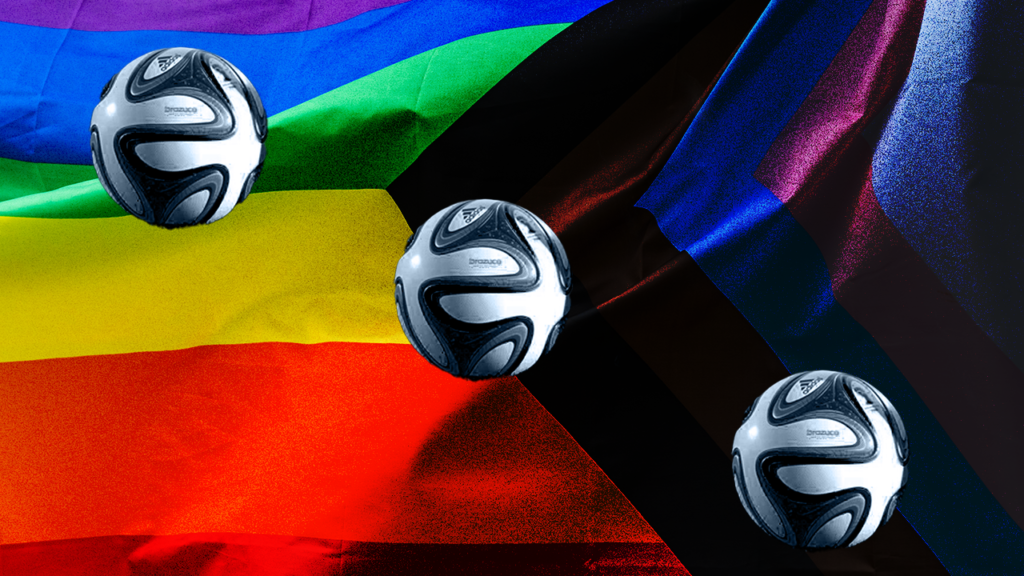Some of the world’s most iconic brands are also the most openly supportive of LGBTQ equality. However, some brands’ recent sponsorship of the 2022 World Cup held in Qatar has put the authenticity of their commitment into doubt, adding an extra burden to marketers seeking to promote their brands as the real thing.
Friends of FIFA? How Qatar changed the game for marketers
You wouldn’t guess it from the current controversy, but Qatar was chosen as the site of the 2022 World Cup back in 2010, competing against Japan, Australia, and The United States of America. Back then, the US State Department report about Qatar stated that while it was not a democracy, it didn’t see evidence of rampant torture or prisoner maltreatment – with the asterisk that citizens were likely to be “hesitant” to make complaints. The US has an embassy in Qatar and the nation has been a regional strategic ally of the US for decades, so brands snapping up sponsorships for the 2022 World Cup back in the day should not be surprising. In the US, the Defense of Marriage Act—which allowed same-gender marriages to be outlawed by states—would not meet a successful challenge in the courts until 2011, so brands are unlikely to have been thinking about Qatar’s LGBTQ rights status as an element of brand risk. Hyundai jumped in as an official sponsor through FIFA in 2010.
Back then, Hyundai stated in a press release:
“Since our first association with FIFA in 1999, our commitment and support for FIFA has been unrivaled,” said Mong-Koo Chung, Chairman and CEO of the Hyundai Motor Group. “FIFA has set a benchmark for us, pushing our brand value and exposure to the highest levels. We are confident that this renewal will further enhance our business values and corporate vision.”
Today, ESG is a key component of brand risk assessment and social media’s immediacy means that audiences in the millions have access to reports about human rights and other issues in Qatar. That means that being a friend to FIFA via sponsorship can comingle brand reputations with regions or nations that have policies that contradict brand values. Despite the State Department’s ongoing partnership with Qatar—the country even sits on the UN Human Rights Council—the country outlaws premarital sex, adultery, and same-sex intercourse and has a range of punishments ranging from flogging to years of imprisonment to death by stoning, according to Human Rights Watch.
That has led to some media analysts questioning just how brand marketers can navigate a landscape that demands authenticity in its social commitments but practicality when it comes to audience reach (the last World Cup Final was watched by 1.12 billion people) and return on investment for sponsor dollars. In “The Money Behind The Most Expensive World Cup in History”, Forbes’ Matt Craig details just how much cash is on the line:
$277 million, the amount David Beckham was reportedly paid by Qatar to serve as an ambassador for the 2022 World Cup, delivered in installments over ten years.
$4.7 billion: FIFA’s predicted revenue from the World Cup, encompassing TV broadcast rights account for $2.64 billion and marketing rights $1.35 billion, with ticket sales and hospitality rights adding $500 million.
That places marketers and their agencies right in the middle: forced to somehow navigate the brand risks involved in a done deal while ensuring that brand messaging stays visible.
3 ways brands can recover from co-mingled controversy with a little help from marketers
Not every brand can quickly disconnect from brand partnerships or sponsorships that present ethical concerns. Whether jumping ship or staying the course despite all, here are three tips for reaffirming brand values when circumstances make their expression challenging:
Let the audience do the talking
Audiences who feel passionately about social issues and who connect with brand values can be powerful ambassadors for a business and ideas. Leveraging social media and user-generated content campaigns to empower fans to speak their truths and support brand values can be a meaningful act of support (or resistance).
Make a list and check it twice
Review ESG achievements and make sure that they delivered on their promises before tooting the proverbial horn about commitment to values. When positive change is authentic and sustained, it can speak louder than words—even when temporary alliances are problematic.
Build an acceleration map for good
Aligning with human rights issues during a designated month can be seen as a marketing ploy no different than a holiday-themed store window unless those values are connected to a plan to do good more efficiently and faster than before. Create a clear map as to what your brand will attempt to do to support your values, even if it is a small, local effort.
